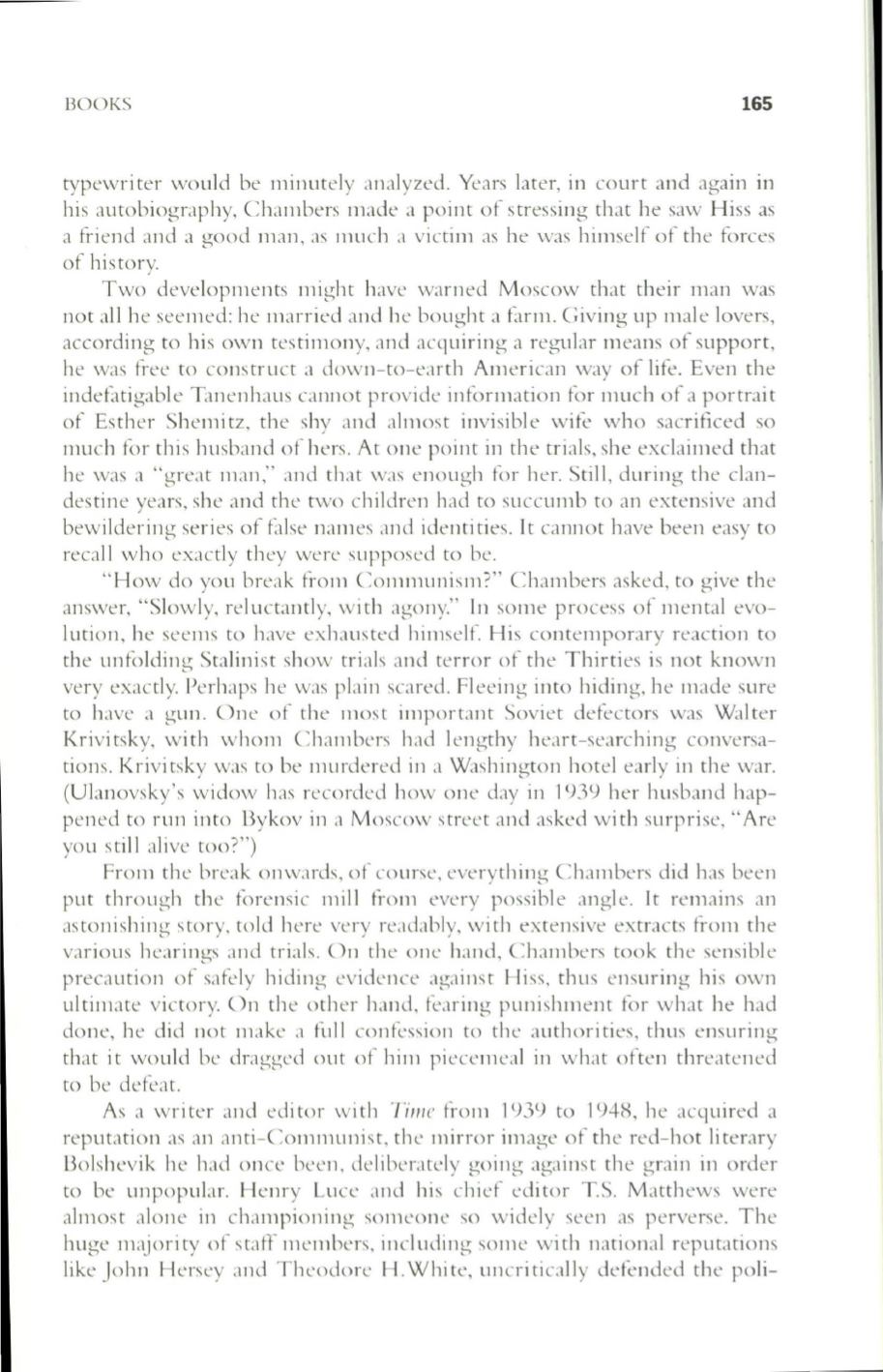
l300KS
165
typewriter would be minutely analyzed. Years later, in court and again in
his autobiography, Chambers 1ll:1de a point of stressing that he saw Hiss as
a friend and a good man, as much a victim as he was hilllself of the forces
of history.
Two developments might have warned Moscow that their man was
not all he seellled: he married and he bought a
Emll.
Civing up male lovers,
according
to
his own testimony, and acquiring a regular Illeans of support,
he was f"j'ee to construct a down-to-earth American way of life. Even the
indefatigable Tanenhaus cannot provide information for much of a portrait
of Esther Shemitz, the shy and almost invisible wife who sacrihced so
Illuch for this husband of hers. At one point in the trials, she exclaimed that
he was a "great man," and that was enough fix her. Still, during the clan–
destine years, she ;]nd the two children had to succumb
to
an extensive and
bewildering series of f:.1lse names and identities. It cannot have been easy
to
recall who exactly they were supposed to be.
"How do you bre;]k from Communism?" Chambers asked, to give the
answer, "Slowly, rei uctantly, wi th agony." In some process of mental evo–
lution, he seems to have exhausted himself. His contemporary reaction to
the unfolding Stalinist show trials and terror of the Thirties is not known
very exactly. Perhaps he W:1S plain scared. Fleeing into hiding, he made sure
to
have a gun. One of the most important Soviet defectors was Walter
Krivitsky, with wholll Chambers had lengthy heart-searching conversa–
tions. Krivitsky was to be murdered in a Washington hotel early in the war.
(Ulanovsky's widow has recorded how one day in
1
<)39 her husband hap–
pened to run into 13ykov in a Moscow street and asked with surprise, "Are
you still alive too?")
From the break onwards, of course, everything Challlbers did has been
put through the f()rensic mill f"j'om every possible angle. It remains an
astonishing story, told here very readably, with extensive extracts from the
various hearings and trials. On the one h:lIld, Chambers took the sensible
precaution of s;lfely hiding evidence against Hiss, thus ensuring his own
ultimate victory. On the other hand, fe.1ring punishment for what he had
done, he did not make a full confession to the authorities, thus ensuring
that it would be dragged out of him piecemeal in what often threatened
to
be defeat.
As a wri ter and edi tor wi th
Till/('
f"j'om
1
<)3<) to
194~,
he acquired a
reputation as an anti-Communist, the mirror image of the red-hot Ii terary
130lshevik he had once been, deliberately going against the grain in order
to be unpopular. Henry Luce and his chief editor TS. Matthews were
almost alone in challlpioning someone so widely seen as perverse. The
huge
m ;~ori
ty of st;]fT members, including some wi th national reputations
like John Hersey and Theodore H.White, uncritically defended the pol i-


